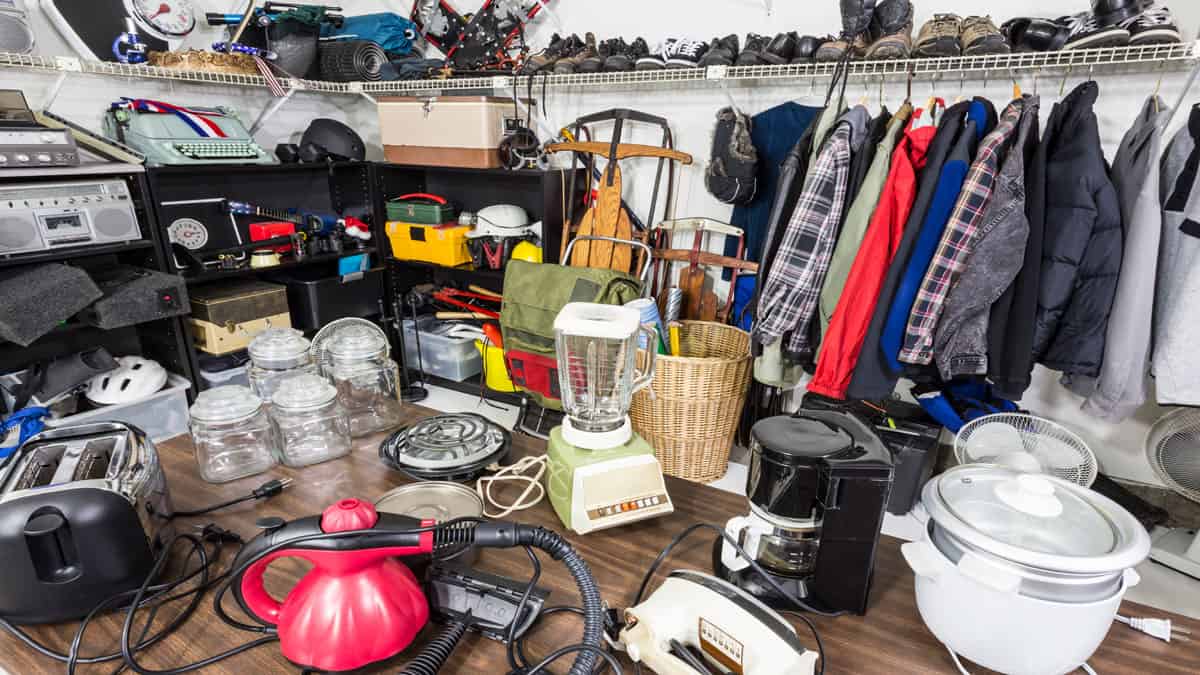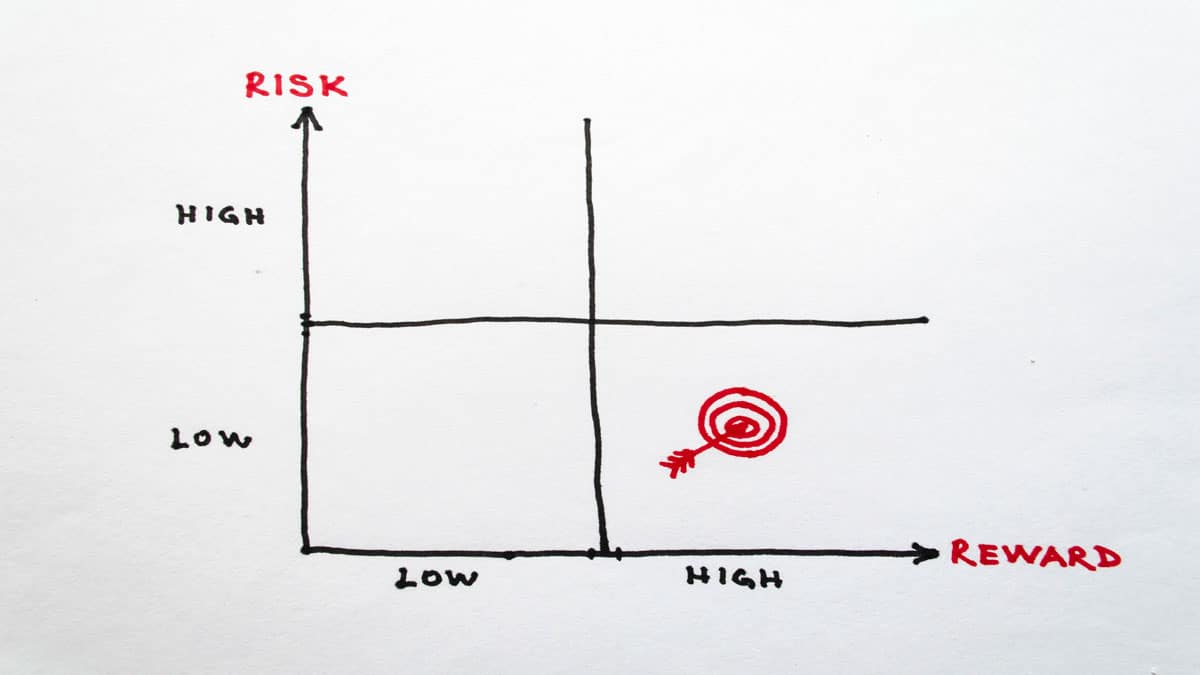THIS POST MAY CONTAIN AFFILIATE LINKS. PLEASE SEE MY DISCLOSURES. FOR MORE INFORMATION.
What if poverty was a living, breathing thing that followed you around for the rest of your life?
Many think of poverty as something one can simply escape by getting a better job or more money, but it works its way into our lives in far deeper ways than we expect.
For some, escaping the ghosts of poverty is an ongoing struggle, one that shapes and influences their perspectives even years later.
In this article, we’ll explore not just how poverty affects people financially or logistically, but how it haunts them for years after they’ve already been able to break free from its grasp.
#1. Using Every Last Ounce Of Things

Growing up poor teaches you the value of things.
You learn that every penny counts, and there’s no such thing as wasting resources.
When your family had very little, it was always important to make everything you had last for as long as possible.
This mentality sticks with you throughout your life.
You’re always looking for ways to get every last squeeze of toothpaste, even if it means cutting the tube in half and running your toothbrush along the insides.
Doing this offers a sense of pride in getting the most out of what you have.
#2. Not Throwing Out Food

People who grew up poor often experienced food scarcity and insecurity, where they didn’t always have enough food to eat.
As a result, they tend to develop a strong appreciation for the value of food and the effort it takes to obtain it.
This can lead to a tendency not to want to waste food, as throwing it away feels like a disregard for the hard work that went into acquiring it and a reminder of past struggles with food insecurity.
This issue might come through as always ensuring you eat everything on your plate, or it could be obsessing over leftovers to ensure to eat them before they go bad.
#3. Having Control Issues

People who grew up poor may have experienced a lack of control in many areas of their life due to limited resources and opportunities.
Because of this, they may develop a desire to control their environment as much as possible, including their relationships and possessions.
This desire for control can manifest as a need to micromanage and plan every detail and difficulty delegating tasks to others.
Additionally, a fear of losing what they have worked hard to attain can lead to hoarding or other behaviors related to a need for control.
These tendencies can be a way of coping with past feelings of powerlessness and insecurity.
#4. Trusting Others

Growing up poor can leave some people with a bit of a trust issue when it comes to others.
It’s not that poor people inherently don’t trust anyone. It’s just that continually being let down by those around them can leave a lasting impact.
When people don’t have the resources to provide for themselves or their families, they often rely on others for help.
Unfortunately, this means they’re more likely to encounter people who may exploit their situation.
It’s hard to open up and trust others when you’ve been let down before, so it’s no wonder some people who grew up poor struggle with this.
#5. Picking Up Free Items

People who grew up poor may have developed a mindset of making the most of every opportunity, including the chance to obtain free items.
They may have experienced firsthand the importance of being resourceful and creative with limited resources.
Additionally, getting something for free can be a source of pride and accomplishment, representing a tangible benefit gained without spending money.
This can lead to a tendency to seek out free items or deals, even when one’s financial situation has improved.
#6. Hoarding Money

Many people who grew up poor tend to hoard money as adults.
It’s like a security blanket to ensure they never have to experience the financial insecurity they faced in their youth.
While saving money is an important habit, it’s essential to enjoy the fruits of our labor and not let the ghosts of our past dictate our relationship with money.
Ultimately, the key is to find a balance that allows for financial stability without sacrificing the joys of life.
#7. Scared To Take Financial Risks

People who grew up poor may have learned to be cautious with their finances due to the potential consequences of making a mistake or taking a risk.
They may have experienced firsthand the stress and anxiety of not having enough money and therefore have a strong desire to avoid financial instability.
Additionally, they may not have had access to the same resources and opportunities for financial education and guidance that those from more affluent backgrounds may have had.
As a result, they may be more risk-averse and hesitant to make financial investments or take on debt, even when it could potentially lead to long-term benefits.
#8. Stocking Up When You Find Deals

Unsurprisingly, many people who grew up poor tend to stock up when they come across a good deal.
Having extra shampoo or canned goods lying around can be an absolute comfort when you’re used to living paycheck to paycheck or struggling to make ends meet.
It’s like a safety net, ensuring you’ll have what you need, even if money is tight.
#9. Inability To Spend Money On Things You Need

When every penny counts, it’s easy to develop a scarcity mindset that makes it hard to part with our hard-earned cash.
After all, we’ve learned the hard way that we can’t always count on having enough money to go around.
As a result, we may hesitate to spend money on things we need even when we can afford them.
It’s almost like we’re waiting for the other shoe to drop and a financial emergency that will drain our resources.
But the truth is that sometimes we need to take a deep breath and trust that we can handle whatever comes our way.
#10. Not Believing Your Finances Can Improve

Growing up poor can take a toll on a person’s mindset, particularly regarding money.
When you’ve lived your whole life with the constant stress of not having enough, it’s tough to imagine things being any different.
It can feel like no matter what you do, you’ll never quite get ahead.
And even when you start to progress, that nagging voice in your head keeps telling you it won’t last.
How to Get Free Samples Without Taking Surveys

Everyone likes getting free stuff, but many times you have to fill out a survey.
Here are some great ways to get free stuff without strings attached.
16 WAYS TO GET FREE SAMPLES BY MAIL WITHOUT SURVEYS
How To Save Money When You’re Broke

When you have no money, the idea of saving sounds impossible. In fact, for many people, the idea never crosses their mind because they are only focused on getting money to survive.
But there are steps you can take to actually save money even when you are broke. Doing so will help you change your financial life faster than you thought possible.
HOW TO SAVE MONEY WHEN YOU’RE BROKE
Good Money Habits To Have

In order to get ahead financially, we need to develop good habits. Most people talk about bad money habits to get rid of.
Here are good money habits you need to follow if you want to take the next step financially.
17 GOOD MONEY HABITS TO DEVELOP
21 Tricks Advertisers Use To Get You To Spend Money

When it comes to spending, we all like to think that we are in control. The truth is, advertisers know exactly how to get us to spend more than we intended.
By understanding their tactics, you can be better prepared to resist them and keep your hard-earned dollars in your wallet.
21 TRICKS ADVERTISERS USE TO GET YOU TO SPEND MONEY
How To Get Back On Your Feet Financially

When financial setbacks happen, you have two options. You can either give in and accept a life of struggle and stress, or you can do something about it.
If you want to do something about it, here are the steps you need to take in order to get back on your feet.
HOW TO GET BACK ON YOUR FEET FINANCIALLY
I have over 15 years experience in the financial services industry and 20 years investing in the stock market. I have both my undergrad and graduate degrees in Finance, and am FINRA Series 65 licensed and have a Certificate in Financial Planning.
Visit my About Me page to learn more about me and why I am your trusted personal finance expert.

